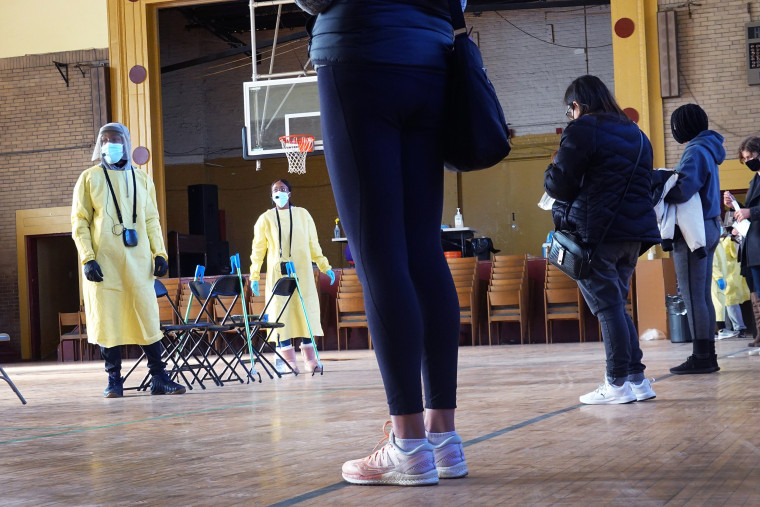The United States surpassed more than 11 million Covid-19 on Sunday, as the third wave of the virus continued its uncontrolled spread, new restrictions were introduced, and Americans weighed whether and how they can celebrate Thanksgiving.
The U.S. recorded more than 1 million new cases this past week alone, including 156,416 on Saturday, which marked the eleventh day in a row that the United States recorded more than 100,000 daily cases. More than a dozen states, including New Hampshire, Maryland, Colorado, and Montana, all broke daily records of cases on Saturday as well. Georgia was the only state in the country to see a decrease in cases over the past 14 days.
In Washington state, Gov. Jay Inslee announced the closure of indoor dining on Sunday, which will take effect at the end of Monday and last through Dec. 14. He also limited in-store retail to 25 percent occupancy. Indoor fitness facilities and gyms are to fully close. The decision comes shortly after Illinois did the same. In Chicago, a stay-at-home order that will last 30 days begins Monday, with Mayor Lori Lightfoot warning that a huge increase in death could result without one.
In Mount Vernon, New York, next to early Covid-19 hotspot New Rochelle, the city also issued a “stay-at-home advisory” that will begin Monday. citing the virus’ resurgence in New York. In New York City, Mayor Bill de Blasio said Sunday that schools would remain open, as the positivity rate creeps towards the 3 percent that would trigger a shutdown.
In Colorado, Gov. Jared Polis brought his state back into Phase 1, as 1,100 people in the state are hospitalized with the coronavirus. The governor is hoping to increase hospital bed capacity by at least 50 percent, and is asking hospitals to continue to planning to convert medical and surgical beds to ICU beds if necessary.
And in Michigan, where officials said soaring case counts could soon lead to 1,000 deaths a week, Gov. Gretchen Whitmer announced a new order Sunday partially shutting down venues like restaurants, bars and schools. The three-week order also limits family gatherings, suspends organized sports that aren't professional or university-level and extends a mask mandate for indoor and outdoor gatherings.
“We’re seeing more cases in more places than ever,” Dr. Tom Frieden, former CDC director under President Barack Obama, told the “TODAY” show Sunday.
More than 60,000 Americans are currently hospitalized with the virus, which Frieden predicts will rise to at least 100,000 in the next month.
“Unfortunately, that means changing our Thanksgiving plans,” Frieden said, who recommends that people do not travel for the holiday and avoid “crowded, indoor spaces.”
“Traveling from one place to another, meeting inside with lots of families for a long time without masks, that’s a formula for a massive explosion,” he said. “Unless we change our Thanksgiving plans, we are going to have a very unmerry Christmas, I’m afraid.”
As numbers increase, so, too, has the emotional toll on families. In San Antonio, Texas, 4-year-old Raiden Gonzalez lost both his parents to the virus. His father died in June at 33, and his mother in October at 29.
“Just this morning he told me that he wishes he had his mom back and he just wanted her back,” Raiden’s grandmother Rozie Salinas, said.
Healthcare workers are feeling the burden too as the virus only gets worse. “Everyone feels like they ran a marathon and now we’re being asked to do an ironman, and now we’re just tired,” Dr. Michelle Prickett, of Northwestern University Hospital, told “TODAY.”

